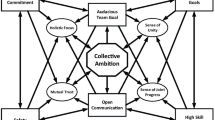Abstract.
Managers wish to motivate workers to exert effort. There is large literature on the use of wages and monetary incentives for this purpose, but in practice the “honor” or “prestige” of an award can be a significant motivator as well, unless the award is given so often that its prestige is diluted. The model here focuses on management of the reputation of an award that may or may not have a fixed monetary component. The model is an optimal dynamic control model, so its solution suggests how to manage the award over time. The analysis is interesting because of a “false” steady state that is adjacent to but outside the admissible region and which otherwise has the qualitative properties of a steady state; there are (infinitely many) trajectories converging to it and (infinitely many) trajectories starting arbitrarily close to it. For all initial conditions there are infinitely many candidates for the optimal solution that cannot be evaluated in the standard way. We resolve that problem by proving a new proposition concerning the value of the utility functional when the limit of the Hamiltonian is non-zero. Managerial implications are derived.
Similar content being viewed by others
Author information
Authors and Affiliations
Corresponding author
Additional information
Manuscript received: August 2003 / Final version received: June 2004
Rights and permissions
About this article
Cite this article
Gavrila, C., Caulkins, J., Feichtinger, G. et al. Managing the reputation of an award to motivate performance. Math Meth Oper Res 61, 1–22 (2005). https://doi.org/10.1007/s001860400400
Issue Date:
DOI: https://doi.org/10.1007/s001860400400




